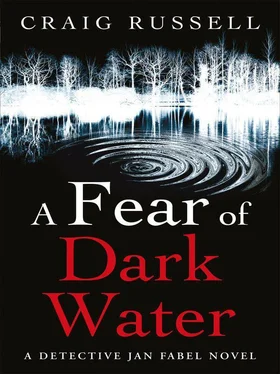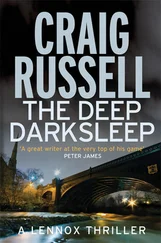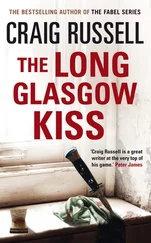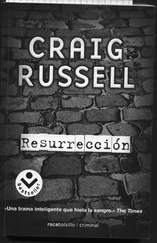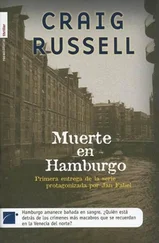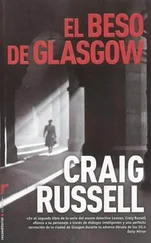Craig Russell - A fear of dark water
Здесь есть возможность читать онлайн «Craig Russell - A fear of dark water» весь текст электронной книги совершенно бесплатно (целиком полную версию без сокращений). В некоторых случаях можно слушать аудио, скачать через торрент в формате fb2 и присутствует краткое содержание. Жанр: Триллер, на английском языке. Описание произведения, (предисловие) а так же отзывы посетителей доступны на портале библиотеки ЛибКат.
- Название:A fear of dark water
- Автор:
- Жанр:
- Год:неизвестен
- ISBN:нет данных
- Рейтинг книги:5 / 5. Голосов: 1
-
Избранное:Добавить в избранное
- Отзывы:
-
Ваша оценка:
- 100
- 1
- 2
- 3
- 4
- 5
A fear of dark water: краткое содержание, описание и аннотация
Предлагаем к чтению аннотацию, описание, краткое содержание или предисловие (зависит от того, что написал сам автор книги «A fear of dark water»). Если вы не нашли необходимую информацию о книге — напишите в комментариях, мы постараемся отыскать её.
A fear of dark water — читать онлайн бесплатно полную книгу (весь текст) целиком
Ниже представлен текст книги, разбитый по страницам. Система сохранения места последней прочитанной страницы, позволяет с удобством читать онлайн бесплатно книгу «A fear of dark water», без необходимости каждый раз заново искать на чём Вы остановились. Поставьте закладку, и сможете в любой момент перейти на страницу, на которой закончили чтение.
Интервал:
Закладка:
But the autopsy had revealed something different.
‘It would appear that she wasn’t as fresh as we first thought,’ explained Dirk.
‘Meaning?’ Nicola Bruggemann and Fabel asked the same question simultaneously.
‘Meaning that an analysis of the victim’s blood found evidence of cold storage. Not freezing, but that she had been kept at a very low temperature, like in a cold store.’
‘Someone was trying to confuse us about the time of death?’ asked Fabel.
‘It looks like it,’ said Thomas Glasmacher. ‘There’s no way of telling how long she was in the cold store or how long she was kept at room temperature afterwards. So yes, it looks like the killer has tried to confuse us about the time of death. And he’s succeeded.’
‘But why?’ asked Werner. ‘Why now? He’s never done anything like this before.’
‘Unless our guy feels he’s slipped up,’ said Dirk. ‘Or maybe he thinks he was seen. It could be that he’s trying to fudge the time of death so he can’t be pinned down to the scene of crime.’
Fabel thought about what Hechtner had said. ‘Possible, but it doesn’t gel with what we know about his modus. I don’t know, Dirk — it’s an odd change of pattern, that’s for sure.’
They left it for the moment and Thomas Glasmacher and Dirk Hechtner went on to provide a report on the victim. It revealed nothing other than Julia Henning had been a pretty, bright but reserved and unattached young lawyer who had worked for a commercial law office in Hamburg, dealing mainly with copyright disputes. Thomas and Dirk had spoken to Julia’s parents, colleagues and friends, of whom there were comparatively few. Despite being attractive, Julia had had few boyfriends and had not been seeing anyone at the time of her disappearance. She had lived alone in the apartment at the address Fabel had been given by the woman at the docks and had not been seen since she’d left work on the Friday afternoon. She could have been killed at any time over the weekend.
One thing did stand out, however. When her apartment had been searched, everything had been in order. It was only as they were leaving that Dirk had suddenly realised that something was missing. Something that became instantly conspicuous by its absence. A computer. And all the Network Killer’s victims had connected with him on social networking sites.
‘So we thought, if she didn’t have a computer, maybe she had a web-enabled cell phone.’
‘Let me guess,’ said Fabel. ‘No cellphone, either.’
‘Julia Henning must have been the only twenty-seven-year-old in Hamburg without a computer or cellphone. So we pulled out of the apartment and sent in a forensics team. It’s pretty obvious that someone has been in there and taken her stuff, possibly our killer.’
‘The neighbours see anything?’
Thomas Glasmacher, the larger and quieter of the two answered. ‘No
… no one saw anything unusual or anyone they didn’t know come in or out. We found a shoebox full of receipts and warranties and we’ve been going through that. Also, we’ve asked her bank for full details of her outgoings. I’ll bet we’ll find a direct debit to a phone-service provider. But proving she had a computer and a cellphone doesn’t bring us any closer to actually finding them.’
Fabel grunted; they seemed to be perpetually scrabbling around in a fog.
‘There’s something about this one,’ he said, rubbing his chin. ‘It all smacks of someone trying to cover tracks and confuse times. As Werner said, why now? Why did he feel the need to make these changes with this one?’
They moved on to the Muller-Voigt inquiry. Werner ran through the progress to date. He confirmed what Astrid Bremer had already told Fabel about the fingerprints and the stray sample of grey fibre found at the scene. Fabel felt the tension in the room when Werner read from the report that only Fabel’s and the dead man’s fingerprints had been found on the weapon. Other than that, the investigation into the politician’s death also seemed to be stalling, despite it being obvious that Werner was pulling out all the stops to remove any suspicion, no matter how slight, that his boss might have been involved in the murder.
Anna Wolff then picked up the thread.
‘Muller-Voigt’s mystery woman is less of a mystery,’ she said. ‘But not much less.’
‘Oh?’ said Fabel, his interest pricked.
‘Muller-Voigt had a broad range of restaurants he would take women to. It would have made things easier if he had been more a creature of habit, but I have checked them all out. No one saw him with a woman fitting Meliha’s description. Then I thought that maybe she called the shots and decided where they should eat. And with her being Turkish, I thought I’d check out some of the Turkish restaurants in town. Believe me, there are a lot of Turkish restaurants in Hamburg. I took the liberty of pulling in a favour from uniform and circulated a picture of Muller-Voigt and a description of Meliha Yazar. We struck gold in Eimsbuttel — not something you get to say every day. There’s a restaurant on Schulterblatt in the Schanzenviertel and the owner swears Muller-Voigt and Meliha were regulars. He recognised Muller-Voigt’s picture but didn’t have any idea he was a politician, and he remembers Meliha because she spoke Turkish to him. He said she told him she was from Silviri, on the coast. She had been in a couple of times on her own, but there’s no credit card transaction recorded because either Muller-Voigt paid or she paid by cash. But I’m afraid that’s it — he couldn’t tell me any more. Although he did say their regular waiter is on holiday at the moment. But he’ll be back this week. The owner said he got the idea that the woman didn’t like being asked questions. Other than that, she was very friendly and he got the impression that they were a very close couple.’
Another amateur psychologist waiting table, thought Fabel. ‘Well, it’s something. It’s more than something — well done, Anna. At least now we can demonstrate that Meliha Yazar did exist.’
He resumed the formal procedure of the caseload recap, hoping that something would leap out at them. Usually the job of the Murder Commission was to find a commonality between cases, to establish links. The problem at the moment, thought Fabel, was that they kept tripping over commonalities and links where there should be none: the Network Killer case was unlikely to be related to the female torso washed up at the Fischmarkt; Muller-Voigt’s murder could be linked to the torso, but logically Daniel Fottinger’s death — his possible unintentional death — should have been separate from everything else.
But there were links. There was a commonality. Or at least there was a mass of coincidences that stretched the laws of probability beyond the credible.
Muller-Voigt’s missing girlfriend had been investigating the Pharos Project and the body on the Fischmarkt had been in the water for almost the same period that she had been missing. Muller-Voigt was a non-executive director of Fottinger Environmental Technologies, and both Daniel and Kirstin Fottinger were members of the Project. Even the Network Killer case had an unexpected, if coincidental, link to Pharos through the company that had developed Virtual Dimension. Then, of course, there was the fact that someone had done their best to implicate Fabel in both the Network Killer case and Muller-Voigt’s murder; and whoever had done that had enormous technological skills and resources at their disposal. Like the Pharos Project.
‘But what possible link could there be between the Pharos Project and women who have been targeted in a classic serial sex-offender way, raped and strangled?’ asked Nicola Bruggemann. ‘Ritual murders, I could believe. Elimination of ex-members would be probable, but we know that none of these women had any connection to the Project at all.’
Читать дальшеИнтервал:
Закладка:
Похожие книги на «A fear of dark water»
Представляем Вашему вниманию похожие книги на «A fear of dark water» списком для выбора. Мы отобрали схожую по названию и смыслу литературу в надежде предоставить читателям больше вариантов отыскать новые, интересные, ещё непрочитанные произведения.
Обсуждение, отзывы о книге «A fear of dark water» и просто собственные мнения читателей. Оставьте ваши комментарии, напишите, что Вы думаете о произведении, его смысле или главных героях. Укажите что конкретно понравилось, а что нет, и почему Вы так считаете.
